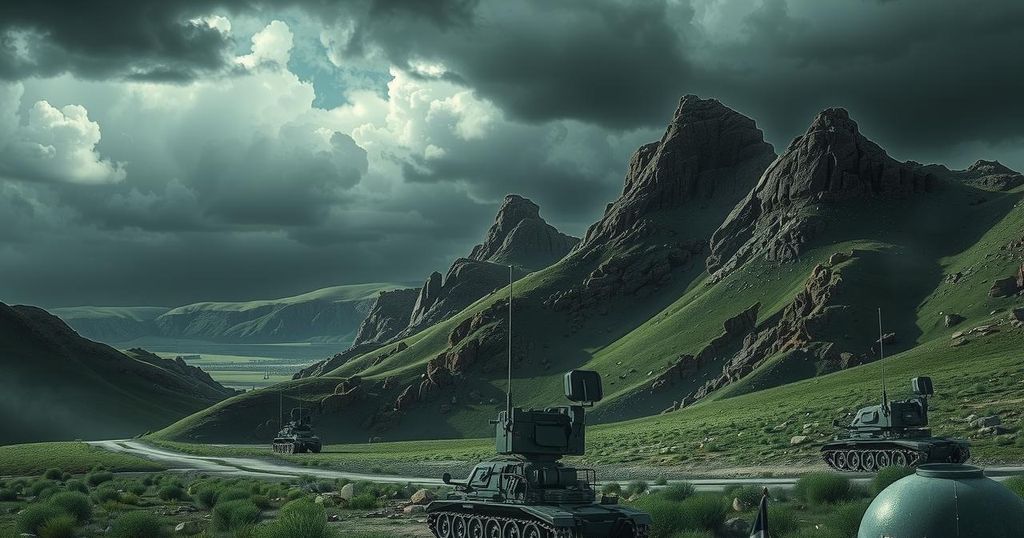The Lebanese Army arrested suspects linked to rocket launches toward Israel, as per General Rodolph Heikal. This action follows Israeli airstrikes that resulted in casualties. Heikal condemned the rocket launches, stressing they undermine peace efforts and are exacerbated by Israeli territorial occupation.
The Lebanese Army has arrested individuals suspected of launching rockets aimed at Israel, as confirmed by General Rodolph Heikal, the newly appointed commander of the Lebanese armed forces. Heikal made this announcement during a military inspection in the border area, emphasizing ongoing investigations to ascertain the identities of those responsible for the rocket launches from Lebanese territory.
This development follows a sequence of Israeli airstrikes on southern Lebanon and south Beirut, which were conducted in retaliation for the two rockets fired at Israel. The air strikes resulted in six fatalities and injured 21 individuals, as reported by Lebanese authorities. The Lebanese Army rapidly identified the source of the rocket fire in the vicinity of Qaqa’iyat al-Jisr in the Nabatieh governate, located north of the Litani River.
General Heikal condemned the launch of rockets and warned that such actions benefit adversaries and hinder peace initiatives. He highlighted that, despite a ceasefire agreement brokered by the United States and France on November 27, 2024, Israel still occupies five strategic locations along the border. Heikal noted that the Israeli presence in these positions poses a significant barrier to the complete deployment of the Lebanese Army and the establishment of lasting peace.
The Lebanese Army’s recent arrests underscore ongoing tensions in the region, with military leadership actively addressing the rocket launches aimed at Israel. General Heikal’s statements reflect a commitment to investigating these incidents while emphasizing the detrimental impact of Israeli occupation on peace efforts. The situation remains sensitive following the recent airstrikes and ongoing military activities along the border.
Original Source: www.algemeiner.com






